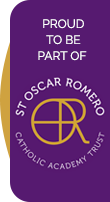Phonics
Intent
The systematic teaching of phonics has a very high priority throughout the Foundation Stage, Key Stage 1 and beyond. At Holy Innocents’, we value reading as a key life skill, and are dedicated to enabling our pupils to become lifelong readers. We acknowledge that children need to be taught the key skills in segmenting and blending to be equipped with the knowledge to be able to complete the Phonics check at the end of year 1. We also value and encourage the pupils to read for enjoyment and recognise that this starts with the foundations of acquiring letter sounds, segmenting and blending skills.
Implementation
We follow the DfE validated scheme ‘Essential Letters and Sounds’ (ELS) scheme at Holy Innocents’. Through this scheme, children are taught the essential skills needed for reading. Phonics is taught daily to all children in Reception, Year 1 and Year 2 (Summer Term 1). Extra support is provided to those in Year 2 who have not passed Phonics Screening in Year 1 and interventions are planned for those children who are working below expected levels. Phonics teaching can also be extended to Lower Key Stage 2 for children who are struggling with reading and spelling. This is enabled through small groups working daily with the Teaching Assistants following the Essential Letters and Sounds intervention strategies.
Staff systematically teach learners the relationship between sounds and the written spelling patterns, or graphemes, which represent them. Phonics is always taught as a whole class session where children are encouraged to recall previously learnt sounds and to apply their learning to whole word reading. Class teachers should remember to show fidelity to the scheme so that ‘children keep up rather than catch up’. Children may learn to: segment and blend sounds, read and spell variations of graphemes, ‘build’ words using new sounds and write words focusing on identifying sounds within them. Teachers should use the ELS resources to help structure their lessons.
Each child is issued with a decodable reading book that is closely matched to their Phonic abilities. This is to reinforce the learning of new phonemes until they are embedded. Children may also have a second book which should be shared with adults at home as part of reading for pleasure.
Teachers regularly assess the pupil’s phonics knowledge using the ELS termly Phonics assessment which will inform EYFS teachers as to which children are ‘on track’ or ‘not on track’ to meet expected standards by the end of Reception. These regular assessments inform planning and allow teachers to identify any gaps in learning. Children in Year 1 will be preparing for the Phonics Screening Test and so teachers will be assessing all phases and sounds throughout the year. It is expected that all children pass this Screening test in Year 1, but some children may need to repeat Phonics learning in Year 2 before retaking the test.
Impact
Through the teaching of systematic phonics, our aim is for children to become fluent readers by the end of KS1. This way, children can focus on developing their fluency and comprehension as they move through the school. By following the Essential Letters and Sounds scheme we can ensure consistency and fidelity throughout our school so that all children are able to access the same learning. We believe that all good writing begins with a love of reading and so by making Phonics lessons fun, engaging and memorable, we hope that all children become confident, fluid readers who use their Phonics knowledge to access a wide range of books.
Phonics Intent, Implementation and Impact






